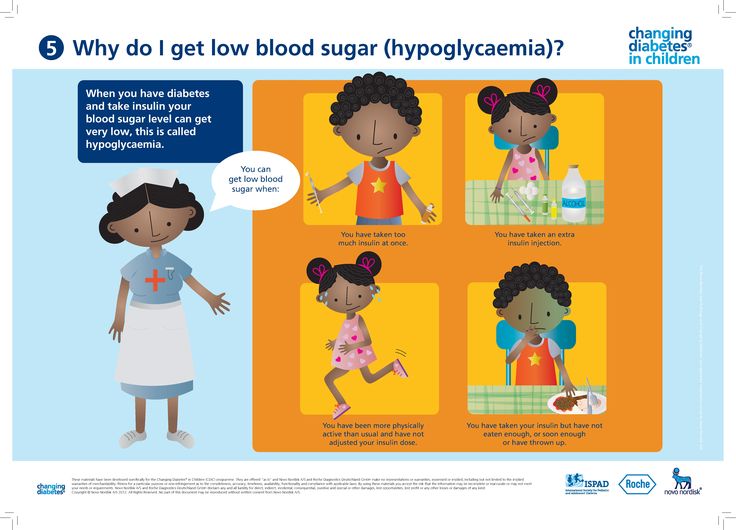Newborn eats all the time
My Baby Wants to Breastfeed All the Time! Is This Normal?
Frequent Feeds Are Very Common!
In the first few days after birth, it is very common for newborns to feed constantly, probably around 12 or more times per 24 hours. Newborn babies drink very small amounts frequently in the first 1-2 days.
Most newborn babies only drink about a teaspoon (5-7ml) of colostrum at each feed on day one. This is just perfect as their tummy is about the size of a cherry and holds about 7mls at each feed on day one! Perfectly designed!
By day two you start to make a little bit more colostrum at each feed and this gradual increase in milk each day stretches bub’s tummy allowing them to drink more.
Colostrum is a sugary delicious drink but it is not jam-packed with fat at this stage, which means baby needs to keep feeding very often to stay full up.
Remember, every time your baby feeds it helps your breasts build your milk supply in the first month. As your milk increases in volume, from around day 3 onwards, you will notice your baby starts to have longer sleep periods of around 1. 5 – 3 hours mostly.
During the first month, newborn babies need to feed on average 8 – 12 times every 24 hours to ensure they are getting enough milk and that you stimulate the breasts enough to keep building your milk supply. One you have established a good milk supply in the first month you may find that your baby changes their feeding pattern again. Many mums report this happens around 6-8 weeks after birth.
After this first month, research has shown us that babies will breastfeed anywhere from 4-13 times every 24 hours, but most babies still feed on average 10-11 feeds every day.
Each mum and baby’s breastfeeding pattern is different and this is perfectly normal. It is just down to the levels of fat in your milk (and fat levels change throughout the day) and the amount of milk your breast can hold at each feed, as well as how your baby is feeling.
Babies Find Breastfeeding Relaxing
Most babies find breastfeeding very comforting and, just like if we feel upset a hug can do wonders.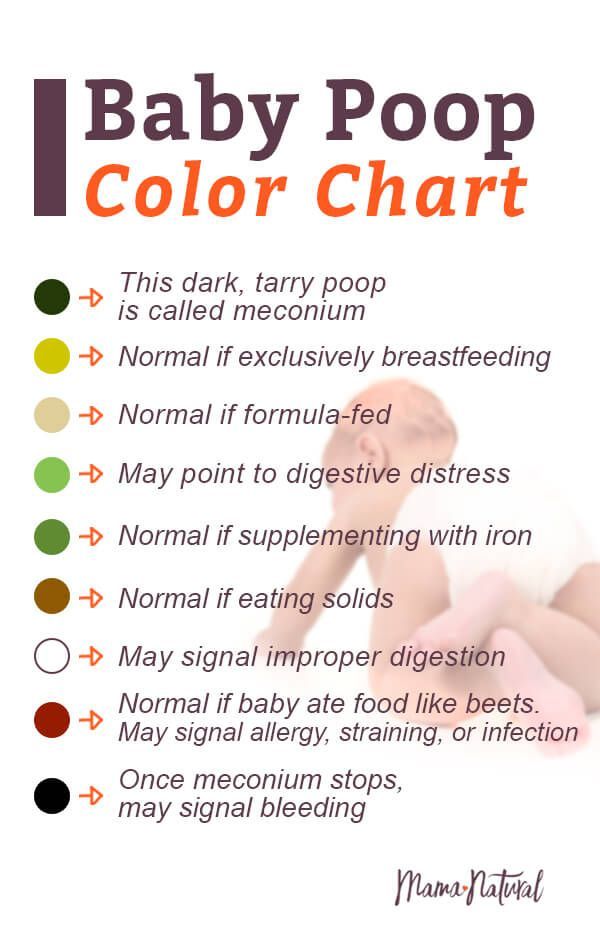 Likewise, a short extra breastfeed does the same for calming our babies!
Likewise, a short extra breastfeed does the same for calming our babies!
Do not compare yourself with another mum and baby’s feeding pattern. It will most likely be completely different from yours. Trying to “force” your baby into strict routines often brings with it tears and stress for mum and bub!
There are, of course, some mums who say that a routine was the best thing for their baby. But these babies are probably the very small percentage of babies who naturally feed every 4-5 hours and would’ve gotten themselves into a strict schedule anyway!
For most babies, a strict routine does not work! Try and go with the flow, listen to your baby’s cues for when they would like a feed and feed them. Just like us, they will not stick to the same “routine” every day.
I bet you didn’t have the same things to eat, in the same quantity, at the same time, with the same glasses of water, cups of tea or snacks as you have today! So why do we think this is normal for our babies?!
Cluster Feeds Continue After the First Few Days
Most mums report that their baby feeds frequently and is unsettled more so during the evening hours, most commonly between 6 – 10pm.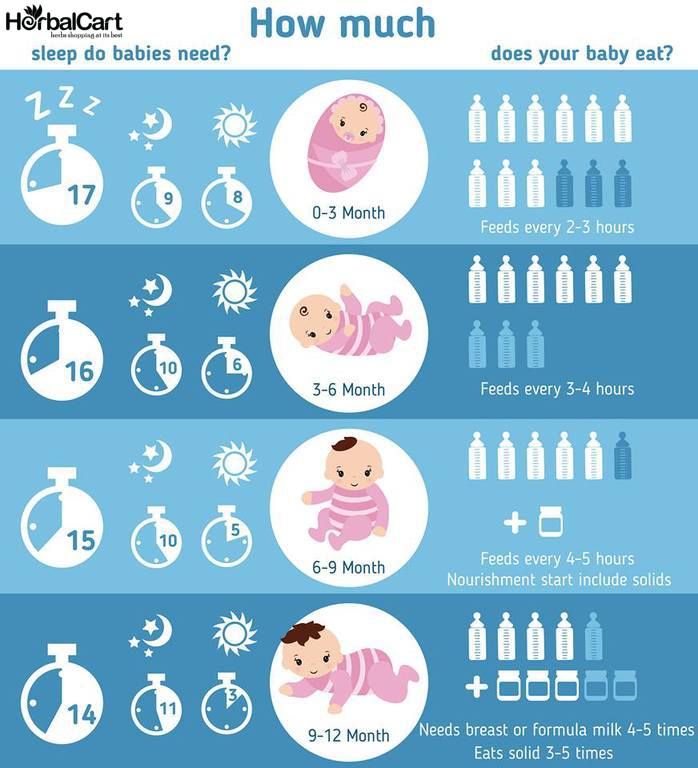 Mums often say that their baby wants to be held constantly and feed “all the time” and that baby cries when put down in their cot.
Mums often say that their baby wants to be held constantly and feed “all the time” and that baby cries when put down in their cot.
This is a very normal and common behaviour for babies who are otherwise content during other parts of the day, feeding and gaining weight well and are generally healthy.
Babies do have these periods of cluster feeding, often most present between 2 and 9 weeks of age, but of course some babies will have these periods for several more weeks and still be totally healthy.
Researchers think it is a developmental stage that all babies naturally need to go through. There are a huge number of processes going on in a baby’s brain in the first year. Babies can easily get overwhelmed or dysregulated in the first few months in particular.
Babies who are overtired or overwhelmed, find it hard to calm down by themselves in the first few months of life and need someone to help them. And what better way to be calmed than having a breastfeed, which of course is not just food, but also a pain reliever and a happy hormone giver!
Also, being held and rocked allows baby to feel safe and warm, like being back in the womb. So, it makes sense that they need to be held and fed so much in the evenings after a big day in the big wide world!
So, it makes sense that they need to be held and fed so much in the evenings after a big day in the big wide world!
Normal Can Still Be Tiring!
Even though this is normal, it doesn’t stop it being exhausting. So, it’s important to note how you are feeling and coping.
Some of us have another person around to help us out, whilst other new mums have to manage alone during the cluster feeds. Regardless of your situation, it is important to realise that cluster feeding is normal.
If you are responding to your baby by holding them and feeding them, yet they are still crying in-between feeds you are not causing harm to your baby, you are still showing them love and they will calm when they are able to.
The other thing to remind yourself is that this is temporary. It is important to not place any demands on yourself during these times. Try preparing dinner at times in the day when baby is sleeping well and just re heat and eat when you can during the cluster breastfeeds!
If you have support, share the holding and rocking of baby with another person to give you a break. If you do not have supports around at that time, listen to your instincts; if you are starting to feel like it is all too much and you feel worried that you are not coping, place your baby safely in their bassinet and walk away to calm down for a few minutes, before coming back to hold baby again.
If you do not have supports around at that time, listen to your instincts; if you are starting to feel like it is all too much and you feel worried that you are not coping, place your baby safely in their bassinet and walk away to calm down for a few minutes, before coming back to hold baby again.
You could also try knocking on the door of your neighbour, who you know and trust, and asking them to hold your baby for 15 mins or so to give you a break.
Most people will understand and, if they have children, they will have gone through the same themselves. Doing this will not harm your baby, but, will give you time to relax a little and recharge.
If you are finding that you are not coping during other parts of the day then it is important to talk with your GP or contact PANDA http://www.panda.org.au/ for some extra help and support.
If you are concerned that your baby’s crying seems abnormal and you are worried if your baby may be unwell. Please get first line advice from these helplines (below). They will be able to give you support and further guidance:
They will be able to give you support and further guidance:
Health Direct helpline (covers all of Australia) 1800 882 436
Maternal and Child Health Nurse 24-hour helpline on 13 22 29 (if you are in the state of Victoria)
Other Things Which Can Help to Relax Babies During Cluster Feeding Times
Skin to skin contact
Having a bath with your baby – only do this if you have another person to help you and baby in and out of the bath and keep you both safe.
“Rocking your pelvis like Elvis” – Whilst holding your baby, try some rocking and swaying moves whilst holding baby either upright, over your arm like superman or in a cradle hold. Each baby will be different in the positions they prefer. You Maternal and Child Health nurse can show you positions for holding and calming babies.
Carrying your baby in a sling. This keeps baby nice and close and creates a womb like environment.
As you rock your baby make a loud “shuuusssshhhh” noise. This is actually calming for babies as it mimics the sounds of being inside the womb.
This is actually calming for babies as it mimics the sounds of being inside the womb.
Try taking 5 deep breaths with your eyes closed before breastfeeding baby to ensure you are relaxed and not tense.
Make sure you get extra sleep in the day time, even if you don’t feel like it make sure you lay down in a darkened, quiet room to rest your body and brain. Over the next few days you’ll soon be drifting off to la la land easily.
Lastly, remember that you cannot spoil a baby by holding them too much. All the information about spoiling babies came out of textbooks written in the early 1900’s!
We have known for years and years that holding and listening to your baby’s needs is the best thing to do, yet we still hear this very bad advice! So listen to your gut instinct and cuddle, love and feed your baby as they need it. This phase will pass and get easier over the next few weeks.
For more information head over to our Medela Australia Facebook page.
Do you ever feel like your baby wants to feed all the time, especially at certain times during the day? Let’s have a chat and support each other!
What to Do When Baby Wants To Eat CONSTANTLY
Cluster feeding is something almost every new mom will face, and it’s hard! In this post, we’ll explainwhy, plus equip you with helpful tips and tricks.
You just gave birth to this miraculous little human being. You’re exhausted. You haven’t showered in days and you’re in full postpartum mode. And yet, your sore nipples won’t catch a break because baby wants to feed ALL. OF. THE. TIME. Don’t worry, mama, this phenomenon is called cluster feeding and it is a.) perfectly normal and b.) temporary. ?
Cluster Feeding Video by Genevieve Howland
What Is Cluster Feeding?
Does it seem like baby wants to nurse all the time? Forget every two hours—it seems like your baby is ready for that milk every 20 minutes! Sounds like cluster feeding, a time when baby needs to nurse frequently in order to satisfy his appetite. Though cluster feeding can happen at any time of the day, it often happens in the evening and is accompanied by a period of fussy and restless behavior that can last for a few hours.
Get free updates on baby’s first year! – Free Updates on First Year [In-article]
Sign me up!
Why Do Babies Cluster Feed?
A schedule sounds nice, right? New parents learn very quickly that you can’t always count on an infant to follow any sort of schedule, no matter how hard you try! It’s normal to experience irregularities to your sleeping or feeding routine with a newborn (or even toddler!)
When baby wants to cluster feed, it’s generally to satisfy the nutritional demands of a growth spurt (also known as a wonder week)—a time when baby is growing and developing both mental and motor skills.
After a bout of cluster feedings, mom’s breast milk output or supply will usually be higher to support baby’s bigger size.
How Long Do Babies Cluster Feed?
Your baby may want to cluster feed anywhere from a few days to several weeks at a time during a significant growth or development period.

According to La Leche League, baby experiences the most rapid growth during the first two months of life. Significant growth spurts (and hence, cluster feedings) most often occur at these times:
- Day 2
- weeks 2-3
- weeks 4-6
- 3 months
Navigating these lengthy periods of increased feedings can be difficult. It’s crucial to remember that this too shall pass—your baby just needs a little extra help in order to fully develop into the healthy, beautiful child that he is destined to become.
How to Take Care of Yourself During Cluster Feeding
When baby wants to eat every 20 minutes, your focus narrows on making sure he gets enough to eat. But don’t forget to take care of yourself! Cluster feeding can be a trying time for Mama, too. Here are some ways to ease the emotional and physical burdens:
Take care of your breasts
Even if your baby has a good latch, frequent nursing sessions can be brutal for your nipples. The good news: There are many effective remedies for sore nipples that are safe for both you and your baby. Here are some ways you can take care of yourself:
The good news: There are many effective remedies for sore nipples that are safe for both you and your baby. Here are some ways you can take care of yourself:
- Use nipple creams: Buy creams, use coconut oil, or try my DIY recipe.
- Apply a warm compress: Cover your breasts with a warm, damp towel for about 10 minutes to ease any tenderness and increase blood circulation.
- Avoid underwire bras: Underwire can put unnecessary pressure on breasts, causing even more soreness.
- Go topless: It’s your house and you can do what you want! Loose clothing—or no clothing at all—will eliminate any extra chafing and can do wonders for irritated nipples.
- Rotate breastfeeding positions! This will help “wear and tear” to your nipples as each breastfeeding position affects the nipples in slightly different ways.
Eat well and stay hydrated
If you’re tempted to scrimp on meals in attempt to lose that baby weight, now is not the time. Your body can burn up to 500 calories a day breastfeeding! That means you really need good calories (high protein; high fat) coming in. (Here are some yummy meals for inspiration.) It’s also important to stay hydrated—a breastfeeding mama needs extra water to keep up with the demands of creating more milk. Shoot for at least 8 cups of water a day, if not 12.
Your body can burn up to 500 calories a day breastfeeding! That means you really need good calories (high protein; high fat) coming in. (Here are some yummy meals for inspiration.) It’s also important to stay hydrated—a breastfeeding mama needs extra water to keep up with the demands of creating more milk. Shoot for at least 8 cups of water a day, if not 12.
Get professional help
Don’t go at it alone! If you have questions about cluster feeding, are experiencing pain, or feel stressed, find a professional who can help. Lactation consultants and organizations like La Leche League or Breastfeeding USA can offer professional advice as well as support groups for new moms.
Lean on family and friends
Utilize your partner to make cluster feeding more manageable. If find yourself stuck in an unusually long feeding session, don’t be afraid to ask your partner to bring you a glass of water, readjust your pillows, or even tidy the house while you feed baby. You may also want someone to cook for you! Or find some healthy takeout places.
You may also want someone to cook for you! Or find some healthy takeout places.
Practice babywearing & skin-to-skin
When baby wants to nurse constantly, put him/her in your baby carrier! Baby can nurse away and you can actually get a few things done around the house. Even better, do it while practicing skin-to-skin contact. This simple practice boosts milk supply, endorphin levels and calms a fussy baby.
Embrace the bonding time
We know it’s tough Mama! But you got this. Try to focus on the biggest benefit of frequent nursing sessions: extra snuggles with your beautiful baby. Believe it or not, you will blink and baby will be heading off to kindergarten. (The days are long but the years are short!) By having the “long view,” you may be able to cope better during this tough time.
A positive attitude can do wonders for your baby, too. When you’re more relaxed, baby tends to be more relaxed and nursing sessions will run smoother (your breasts won’t want to letdown if you’re high stress).
No matter what methods you employ to cope with the demands of cluster feeding, keep in mind that this too shall pass—it’s a common phase in the development of your child.
How to Handle Cluster Feeding at Night
Since cluster feedings can happen round the clock, but are especially common during the night (Grrrreat!), here are some extra strategies if you find yourself up all night…
Carve out a space for yourself
Set up a dedicated location in your home where you can nurse and relax in peace. Make sure you have a cozy chair and leave everything you may need for added comfort—a nursing pillow, a blanket, snacks, a big jug of water (!), nipple cream, etc.
Use soothing techniques
Try to keep your baby as relaxed as possible when nursing by swaying, rocking, and utilizing ambient sound machines to keep baby in a sleepy mode. Avoid bright lights, loud sounds or too much stimulation. You can nurse skin-to-skin to help boost your milk supply, support calming oxytocin levels, and keep baby happy and calm.
You can nurse skin-to-skin to help boost your milk supply, support calming oxytocin levels, and keep baby happy and calm.
Be flexible
Having flexibility in your daytime schedule can help make staying up at night feel more manageable. Sleep when the baby naps during the day. The household chores can wait and scrolling on Instagram isn’t going to give you energy.
Or, ask a friend or family member for help. Adequate sleep (and a proper diet!) can go a long way towards making you feel more refreshed and capable of managing any late evening cluster feeding.
Do Formula-Fed Babies Cluster Feed?
Formula-fed babies can exhibit this behavior, although usually to a lesser extent than those that are breastfed. Luckily many of the same tips and tricks will work for formula-fed babies as well.
Can Baby Be Overfed?
While it is technically possible to overfeed your baby, it’s very unlikely that a breastfed baby gets too much milk as it takes work for him/her to extract milk from your breast! (Have you ever noticed your baby sweating during a nursing session?!) Your baby will generally guide you, offering cues that he/she needs more food or is satisfied.
If you are bottle feeding, try a slow flow bottle and practice paced bottle feeding to prevent overfeeding your baby.
Am I Making Enough Breast Milk?
Cluster feeding can lead new moms to wonder if they are struggling with low milk supply. In most cases, cluster feeding has nothing to do with your milk supply. Rather, baby just needs extra nutrients to fuel all that growing he’s doing!
You can certainly add in special foods or teas that boost milk supply to help during the extra demands of cluster feeding, but don’t be concerned unless baby is showing signs of being underfed.
Sometimes, baby’s constant desire to nurse or overall fussiness may be due to other issues like colic, baby reflux, needing a good burp, or simply overexhaustion.
Signs that you want to pay attention to include:
- Baby is losing weight
- Baby has fewer wet/dirty diapers
- Baby has fever
- Your breasts don’t seem empty after feedings
If these signs are present, call your pediatrician or a lactation consultant for help. During bouts of cluster feeding, baby should be gaining weight and maintaining strong diaper output, so these symptoms could indicate another issue.
During bouts of cluster feeding, baby should be gaining weight and maintaining strong diaper output, so these symptoms could indicate another issue.
How About You?
Did your baby cluster feed? Please share your experiences and any strategies that helped you manage a more demanding nursing schedule!
A newborn sleeps a lot and eats little - A newborn sleeps a lot and eats a lot
Almost every woman at the stage of pregnancy imagines how her life will change, what her baby will be like and how their joint days will be organized.
And conceived, the expectant mother builds in her imagination a certain “ideal” picture, supported by media images and commercials - a constantly smiling or sweetly sleeping baby.
Undoubtedly, babies really sleep sweetly and smile with the most sincere smile. But this is not always the case.
THE FIRST MONTH OF LIFE - DONATION
The first month, and even the first three months of a child's life is called the period of "carrying out" - the stage of adaptation of the baby to the outside world, as well as the young mother getting used to new living conditions, to her new role, to the changed rules of life associated with the birth of a baby.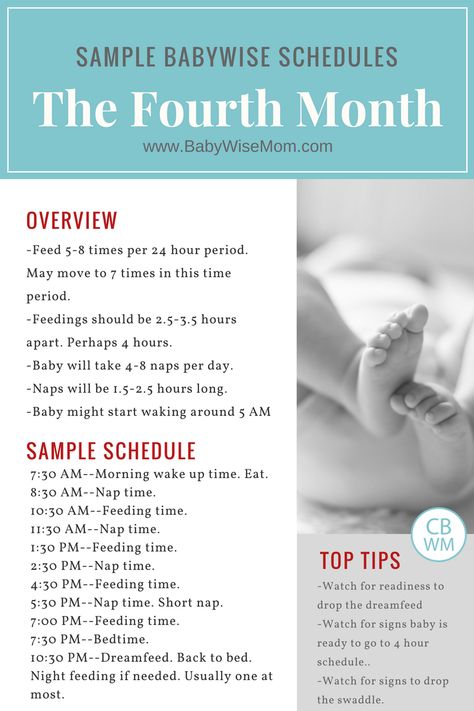
Many young mothers prepared for the birth of a baby already know a lot thanks to the availability of information about the psychophysiology of the newborn.
And, of course, when a mother has information about how much a small child should sleep, she somehow expects this from her baby too.
Let us remind you that a healthy full-term baby of the first year of life sleeps about 15-18 hours a day. Of these, 8-10 occur at night and 6-9 during the day. In fact, a newborn baby sleeps a lot of the time - most of the day.
The period of wakefulness in a baby from birth is quite short - 20 minutes, increasing by the end of the first month of life to 45 minutes (maximum - up to an hour).
Most of the waking time, especially in the first weeks of life, the child spends with the mother in the process of feeding - when he is awake, he eats.
Breastfed babies need to be fed every 1.5 hours during the day (max 3) and every 3 hours at night (max 5). Such time intervals are due to the small volume of the newborn's stomach and the rapid digestibility of breast milk, the child needs to eat often.
Lack of food for more than 3 hours during the day and more than 5 hours at night is dangerous and fraught with dehydration of the child, and besides, if a small child sleeps without waking up for so long, this is an occasion to more closely monitor his condition and tell the pediatrician about it.
All this information is in the public domain, and after reading it, young mothers experience a whole range of feelings - from surprise to fear and confusion at the slightest deviation from the "norm" if her baby does not fit into them, for example, he is awake a lot and eat a lot or, conversely, eat little.
WHAT IT MEANS "LESS SLEEPING"
Let's take a closer look, because often the concepts of "little" and "constantly" are quite subjective criteria.
- It is important to know that the baby on the breast can sleep while sucking - in this case the baby can sleep, although the mother may identify this period as being awake.

- Hour count. In this case, it is better not to focus on subjective feelings. It often seems to tired and sleep-deprived parents that “the child did not sleep at all,” although if you count the hours objectively, you can find out that this is not the case. To calculate sleep time, you can use programs for smartphones, for example, Baby Tracker or any other adapted for these tasks. Recording the baby's sleep hours will help the mother know for sure how many hours he sleeps.
VIDEO LESSON
Baby sleep from 0 to 3 months
More
HOW TO KNOW IF YOUR BABY EATS MUCH?
A bit of theory about the physiology of breastfeeding. In the first three months of life, lactation is established in a breastfeeding mother. Milk comes on the 3rd-5th day of a baby's life. During this period, the colostrum that the baby ate immediately after birth changes its composition and becomes early (transitional) milk. During this period, the arrival of milk is still completely controlled by physiology - the endocrine system of the woman's body, it will remain even if the mother does not feed. And it is this period that is extremely important for establishing lactation - it is very important to put the baby to the breast as often as possible so that he eats, and that, thanks to sucking, receptors sensitive to prolactin are established in the mammary gland. On the second or third week (6-13 days after birth), milk becomes late transitional and only by 14-23 days - mature. Thus, lactation gradually shifts from endocrine control to autocrine control (controlled by the frequency of suckling). This means that the more the baby will breastfeed and eat, the more milk he will receive and vice versa - the less often he eats, the greater the likelihood of lactostasis and a decrease in milk in the breast.
During this period, the arrival of milk is still completely controlled by physiology - the endocrine system of the woman's body, it will remain even if the mother does not feed. And it is this period that is extremely important for establishing lactation - it is very important to put the baby to the breast as often as possible so that he eats, and that, thanks to sucking, receptors sensitive to prolactin are established in the mammary gland. On the second or third week (6-13 days after birth), milk becomes late transitional and only by 14-23 days - mature. Thus, lactation gradually shifts from endocrine control to autocrine control (controlled by the frequency of suckling). This means that the more the baby will breastfeed and eat, the more milk he will receive and vice versa - the less often he eats, the greater the likelihood of lactostasis and a decrease in milk in the breast.
Thus, the baby, by frequent sucking, stimulates the mammary gland to produce milk - this is the most important process that is absolutely normal and correct from the point of view of the physiology of the postpartum period of both the mother and the newborn.
WHAT SHOULD I DO IF THE BABY IS ABOVE THE RATE?
What to do if, using observations and time-counting programs, it turns out that the baby is awake more than normal and does not stop breastfeeding.
First of all, it is important to consult with the attending pediatrician and possibly a neurologist to make sure that the baby does not have neurological and physiological health problems.
Many children sleep restlessly and stay awake more than the norm if they had some difficulties during childbirth (entanglement, hypoxia), separation from their mother in the postpartum period, and so on. In this case, they especially need constant contact with their mother in order to sleep peacefully.
It is also important to make sure that the sleeping conditions are organized correctly - the sleeping room is sufficiently ventilated, not hot (no more than 22 degrees), humid enough (50-60%), the baby does not overheat during sleep (comfortable pajamas for the season, no cap ).
HOW CAN YOU HELP YOUR CHILD?
- Recreating the conditions of the uterus - tightness (sleep in a cradle, in a sleeping bag or in a sling), darkness, motion sickness.
- Feeding on demand. At this age, the baby can be fed as often as desired, without adhering to the feeding regimen. He can eat quite often.
- Maximum contact of the baby with the mother (sling helps the mother to have some freedom of action)
- Sleeping next to mum in side crib with side down promotes closeness between mum and baby and is safe.
Tips for worried moms:
Many new mothers often worry about the “norm” and get scared when things don't go the way they should.
- The first recommendation to all new mothers is to ignore the norms, especially those norms that are inherent in the children of girlfriends. Every baby, like every mother-baby couple, every family is unique and what is normal for her is not necessarily normal for you.
 You will have your own rules. Sleep standards are a guideline. The main criterion is the well-being of your baby. It is important to help him fall asleep not when "it's time", but when you notice his signs of fatigue. Time limits are just a guideline.
You will have your own rules. Sleep standards are a guideline. The main criterion is the well-being of your baby. It is important to help him fall asleep not when "it's time", but when you notice his signs of fatigue. Time limits are just a guideline.
- The same goes for feeding. There is not and cannot be "too much breastfeeding" in the first month of life. The baby can eat as much as he needs. Establishing lactation is now one of the main tasks. Let nature and the baby make it happen.
- Rest and rejuvenate whenever possible. Fall asleep with the baby, involve relatives, spouse to help.
- Record in memory and on paper your thoughts, emotions, discoveries, impressions The first month of a baby's life will fly by very quickly, even if sometimes it seems that time is slow. Take pictures of the baby, watch his changes, because they happen every day!
If you slightly change the angle of perception of the situation, the newborn period will pass easily and naturally, and the calmer and more relaxed the mother is, the calmer the baby’s sleep will be =)
Food and Sleep Breastfeeding NormsSleep Sleep of a Newborn
Wakefulness and Sleep
the whole truth about the “regime” of a child in the first six months of life
Soviet textbooks and our mothers and grandmothers brought up on them say: a child should have a daily routine. Only in this way will he grow up healthy, and his mother will have time to do household chores. But how real is the regime and does the baby need it at all? What you need to know when trying to build the perfect day for a baby, we figure it out together with a pediatric gastroenterologist and a breastfeeding consultant.
Only in this way will he grow up healthy, and his mother will have time to do household chores. But how real is the regime and does the baby need it at all? What you need to know when trying to build the perfect day for a baby, we figure it out together with a pediatric gastroenterologist and a breastfeeding consultant.
VS Rhythm mode
The regime in the "Soviet" sense, when a child's day was scheduled literally by the minute, is a thing of the past. Not a single doctor today will suggest that you constantly look at the clock, calculating the minutes until the baby sleeps. But eating and sleeping on time is really good for the health of the nervous system of both the baby and his parents. Understanding this paradox means understanding what it means to “do everything on time”?
Here everything is simple and purely individual.
On time - this is so that both the child and you feel good. And this, of course, is no longer a regime, but rather a rhythm convenient for everyone.

It depends on the temperament and biorhythm of the child, his state of health.
In modern pediatrics, certain norms of sleep, wakefulness and nutrition of babies in the first year of life are determined. It is important to remember that these data are really averages. If a child sleeps more, eats less and vice versa, then this can be considered an abnormality only in case of strong deviations, and it is the doctor who must make the decision that “something is wrong”.
The life of a child of the first half of the year consists of three fundamental things: sleep, food and wakefulness. He "should" sleep from 20 hours a day in the first month of life to 14 hours closer to 6 months (2-4 hours at a time). He "should" eat 8 times a day at the very beginning of life and up to 4-5 times closer to six months, while for one feeding at the very beginning he "should" eat 70-100 ml of liquid, and by 6 months - up to 240 ml.
Let's emphasize once again that these norms are average, and let's talk about how much control each of these positions needs to be and what can come of it in reality.
Sleep
Sleep is one of the most important components of a baby's life in the first half of the year. A well-sleeping child will not be too capricious on time, will be ready to explore the world and eat well. It can be said that a child's sleep is a concept that determines the quality of life of the whole family and the quality of development of the infant himself.
If you can't manage your child's sleep, let's find out what can be done.
1. Do not blame yourself
First of all, do not consider yourself a bad mother if the child “does not sleep”, “screams all the time”, “confuses day with night”, etc. You are a good mother, and these are just temporary difficulties.
2. Analyze: is it really so bad?
If the baby sleeps a little, and then wakes up happy and ready for learning, then this is his rhythm. You just have to adjust and know that the period of infancy is very short, and the rhythms of the child will change. If your child frequently wakes up crying, check to see if he is hot, cold, stuffy, damp, or just plain hungry. Sometimes it is enough to let fresh cool air into the room, and the child begins to sleep for hours.
Sometimes it is enough to let fresh cool air into the room, and the child begins to sleep for hours.
But if you know that all the external “comfort parameters” are met, the baby is sleeping or obviously wants to sleep, but something is bothering him - he pulls his knees up to his chest, arches and wakes up crying, not having time to sleep properly - tell about it to the pediatrician. Perhaps the baby has colic, then the doctor will give recommendations on what to do with gas formation.
3. Try to follow the baby's rhythm
For example, watch your baby for signs that he is tired and ready to sleep. If at this moment you start to put the child to bed, he will fall asleep pretty quickly. Pay attention to how much sleep the baby needs so that after that he wakes up relatively satisfied, and then you can calculate your free time during the day.
Signs that the child is ready to sleep are:
- rubs eyes, ears, yawns;
- becomes capricious, restless;
- it is impossible to interest him in anything, he does not like everything;
- becomes too active, excited.

In order for the child to sleep well and, on waking up, to fall asleep on his own, introduce simple rituals that the infant will associate with going to bed, and make sure that he avoids lack of sleep or, conversely, overexcitation.
Note the intervals of wakefulness, after which the child easily goes to sleep.
Knowing this, 15-30 minutes before bedtime, you can turn on certain calm music, dim the lights, talk to your baby in a calm, low voice. As a ritual before going to bed, there can be water procedures. Perhaps it makes no sense to do this from the first month of life, but from three months it is quite possible to start.
It is important to remember that a child who is constantly sleep deprived will become more restless every day, because he will produce and accumulate the stress hormone cortisol. The same thing happens with the baby when overexcited.
Watch your child, set a goal for yourself to "get the rhythm", and you can really plan your day a little and rest at night.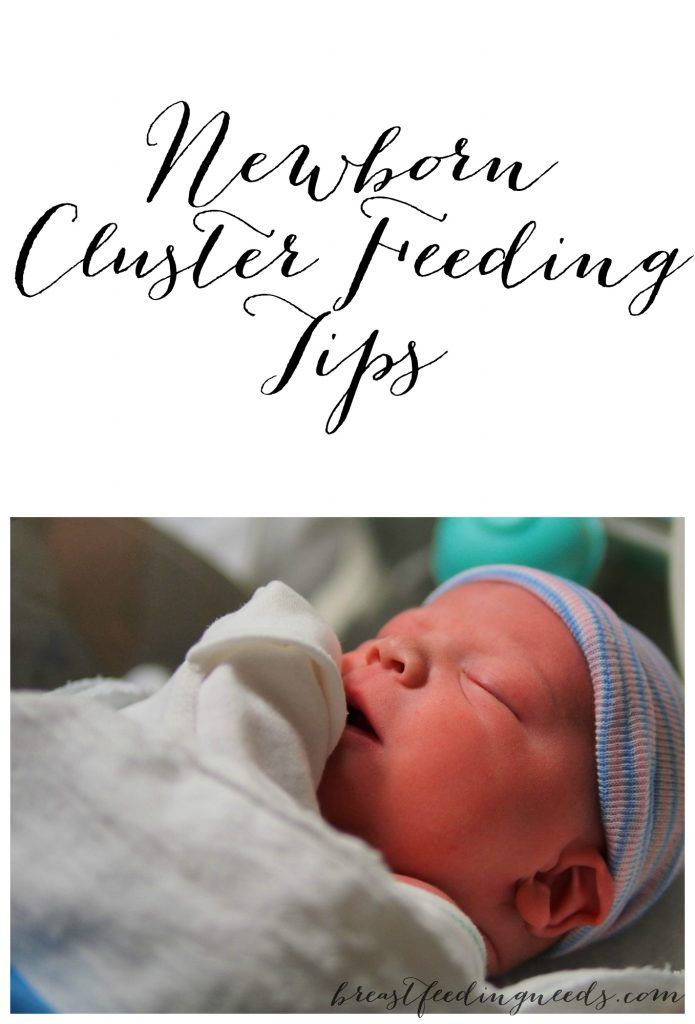
Food
Breastfeeding is considered the best type of food for a baby during the first 6 months of life. At the same time, it is recommended to feed the child “on demand”. The main thing here is to understand what exactly the child requires.
Do I need a "regime" when breastfeeding? What problems can arise and how to solve them? Tells lactation consultant Yulia Anatolyevna Chistova:
“The process of breastfeeding seems simple and natural until you experience it in practice. In reality, questions about breastfeeding begin already in the delivery room and continue to excite mothers for weeks, or even months.
The first stage of feeding a baby after childbirth is feeding with colostrum, a special concentrated liquid that is excreted in a very small volume. The baby at this time loses weight for a number of physiological reasons, and many mothers panic: there is almost nothing in the chest, and the child is losing weight. However, weight loss immediately after childbirth is a completely normal process.
Many babies are very sleepy after giving birth, and, as absurd as it may seem, they often need to be woken up for feeding, because they can oversleep from weakness. The general recommendation is to feed newborns at least once every three hours.
In the next stage, the breast begins to produce milk, and for some women, especially nulliparous, "milk coming" is an unexpected and not very pleasant process. The chest may swell, become hard and painful. Here, of course, the help of the child will be invaluable: the rhythm of feeding should correspond to the rhythm of breast filling, and after feeding it should become soft and painless.
Of particular importance here is not only how often and for how long the baby suckles, but also how he does it. If questions arise, a specialist will help determine the quality of application, and the mother, first of all, should be guided by her feelings - feeding should be completely painless, and the breasts should empty well. As a rule, feeding at this stage takes 30-40 minutes, during which phases of active sucking with visible and audible throats alternate with phases of sleep and weak sucking.
As a rule, feeding at this stage takes 30-40 minutes, during which phases of active sucking with visible and audible throats alternate with phases of sleep and weak sucking.
How can you tell if a child is eating? It is best to focus on objective indicators: the increase from the moment of weight gain should be at least 20 g per day (and preferably from 150-200 g per week), weight recovery at birth should occur no later than two weeks of age, and the child should fill 6-8 diapers daily and have a stool at least 1 time per day.
Feeding rhythms for the first 28 days gradually change from chaotic to more orderly. Uniform answers to the questions “how much and how often does a baby need to be at the breast?” not to be found: you need to carefully evaluate what is happening and trust the objective assessments of the growth and development of the baby.
Sometimes the baby will want to breastfeed more often, on other days he will hint at a willingness to tolerate some intervals between feedings. At the same time, one must understand that not every child is able to eat in uniform portions and withstand without a breast for as long as it would be convenient for mothers. We, adults, also do not eat according to strict rules and norms, but listen to our appetite and well-being.”
At the same time, one must understand that not every child is able to eat in uniform portions and withstand without a breast for as long as it would be convenient for mothers. We, adults, also do not eat according to strict rules and norms, but listen to our appetite and well-being.”
Marina Yulianovna Stepanyan, a children's gastroenterologist , also talks about the possibility of a “chest regimen”:
“Over the past 15 years, the rules for feeding a newborn baby have changed significantly. For the first 6 months of life, it is imperative to feed the baby without a regimen, on demand, the child regulates his hunger on his own and eats different portions of milk at each meal, which immediately eliminates two main misconceptions: feed by the hour and weigh after each feeding. It is impossible to overfeed a child with mother's milk.
The main rule of feeding - the greater the demand of the child, the more milk will be.
Until the age of 6 months, there is no point in distracting the child, looking for calming mechanisms outside of breastfeeding.
If you are worried that your child rarely asks for food, then pay attention to weight gain. The main criterion for proper feeding is the monthly increase in accordance with the established norms. If your child is not gaining weight well or is having trouble suckling, if he is restless, or has foul-smelling loose or hard stools with impurities, this is a reason to contact a specialist - a pediatric gastroenterologist.
In the case of artificial feeding, things are a little stricter. It is important to follow a certain feeding regimen here, since the formula is digested longer than mother's milk, and the phrase "feeding on demand" is no longer 100% suitable. But how to eat right for your “artificial” child will be answered by a pediatrician who observes the baby and knows his state of health. It is he who will help calculate the right amount of the mixture at one time and indicate the approximate number of feedings.
In order for a bottle-fed baby to feel good, it is important to choose the right formula. After all, discomfort in the child's stomach makes not only him, but the whole family worry: there is no time for rhythms.
After all, discomfort in the child's stomach makes not only him, but the whole family worry: there is no time for rhythms.
This material was created with the support of Bellakt. Bellakt is the only manufacturer of dry baby food in Belarus and one of the largest producers of dry baby food in the CIS. This is a modern, high-tech enterprise producing baby food, dairy products, food for pregnant and lactating women. Time-tested quality. Manufacturing experience since 1970g.
If your child is already starting to actively eat purees and cereals, look for an adapted formula that will meet his needs - Bellakt NEW 6–12 .
Bellakt is a new and improved formula based on the latest recommendations from leading baby nutrition experts. The products in this range do not contain palm or rapeseed oil.
For optimal growth and development, the composition of the mixtures is enriched with components: polyunsaturated fatty acids Omega-3 and Omega-6, lutein, nucleotides and prebiotics.
Bellakt mixes are produced using special technologies and without the use of powdered milk! This means that mixtures prepared on the basis of fresh normalized milk undergo a single high-temperature drying, which allows preserving the nutritional and biological value of the protein.
Wakefulness
The periods of wakefulness in a baby up to six months are not so long, but they require mother's attention. Note that this does not mean at all that you should constantly carry it on your hands. If the child woke up in a good mood, not hungry, then he may well “have fun” himself. Lay it on a developmental mat or in a lounge chair and go about your business, but always keep your baby in sight.
At first, these hands-free periods will be short, but over time, the child will become more and more interested in the world around him. Make sure your child is safe and comfortable during self-study. It is not worth leaving him alone in spite of crying: he will associate a play mat and a deck chair with negativity.



